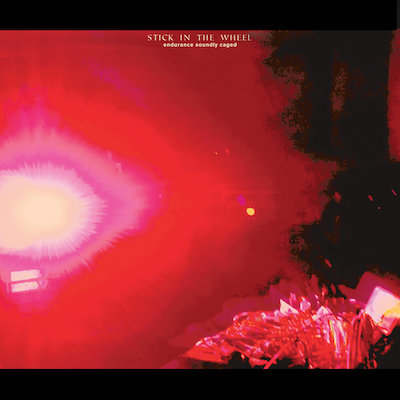
Readers may or may not be aware of Russell Hoban’s brilliant 1980 dystopian novel Riddley Walker, a kind of future folk horror set two millennia after a cataclysmic nuclear event. It is a linguistic tour de force in which Hoban creates a new, brilliantly inventive vernacular with its roots in the half-forgotten past. Every newly forged word is like a strange artefact crammed with information about the past and the future, and taken together, these words have their own unique music. Here’s an example, a snippet of rhyme or riddle that helps form the book’s central mystery:
Horny Boy rung Widders Bel
Stoal his Fathers Ham as wel
Bernt his Arse and Forkt a Stoan
Done It Over broak a boan
Out of Good Shoar vackt his wayt
Scratcht Sams Itch for No. 8
Gone to senter nex to see
Cambry coming 3 times 3
Sharna pax and get the poal
When the Ardship of Cambry comes out of the hoal.
It seems like a kind of nonsense until you take a look at the map of Kent that appears in the front of the book and realise that these are all place names: Herne Bay, Whitstable, Faversham and the rest. You realise after only a short time that what you are reading is a kind of future estuary English, full of coded messaging and mysterious provenance, meanings that have shifted and resettled over thousands of years.
Listening to a Stick in the Wheel record for the first time is a lot like reading Riddley Walker. Like Hoban’s masterpiece, the London group splice an iconoclastic approach to the future with a deep understanding of the limitlessly varied cultural and linguistic aspects of the past. They are alive to the musical possibilities of near-extinct dialects and aware of the need to give voice to marginalised communities, past and present. Here is a small taste of Villon Song, written entirely in thieves’ cant:
It’s up-the-spout and Charley-Wag
With wipes and tickers and what not!
Until the squeezer nips your scrag
Booze and the blowens cop the lot.
Like the Hoban extract, the language here embraces strangeness and otherness. Thieves’ cant, like Polari, rhyming slang, and countless other argots across the world, evolved partly as a cryptolect to enable its users to go about their business without detection from various antagonistic authorities. As such, its otherness is a necessity, and its importance is social as well as historical and artistic.
Villon Song, originally from 2020’s Hold Fast, makes an appearance on Endurance Soundly Caged, a collection of six Stick In The Wheel songs re-recorded live, with a full band and new arrangements, at London’s Eastcote Studios. The version here pulses and pounds with a brutal rhythm section (Siân Monaghan on drums, George Hoyle on bass), while regular members Ian Carter and Nicola Kearey provide squalling electric guitar and insistent, London-accented vocals. The function of this new release is to give listeners the chance to experience something like the live Stick In The Wheel sound, and this rendition of Villon Song certainly has an incredible energy about it. They understand that the working class experience is not limited to folk songs about miners’ strikes or fishing disasters: contemporary are often best expressed using contemporary musical forms, so they are keen to embrace everything from Reichian minimalism to pagan psych via dub, punk, IDM and here a kind of metal-flecked garage rock. As I Roved Out sets Kearey’s uncanny autotuned vocals against a backdrop of arpeggiated synths and clattering drums – the sound has a toothsome thickness, but the message is eerie and destabilising. Gold So Red makes more subtle use of autotuning, pairing it up with jangly guitars to create a kind of indie-rock anthem from an imagined future, with lyrics from a genuinely antique carol.
Aside from these occasional electronic forays, Endurance Soundly Caged focuses on the immediacy of live performance and, therefore, on the more band-driven bits of Stick In The Wheel’s back catalogue. Opening the record is a version of old favourite Bedlam, a seventeenth-century indictment of the romanticisation of mental illness, which hustles along on a simple, nagging guitar lick and Kearey’s energetic singing. White Copper Alley, which clocks in at well under two minutes, seems at first like a Pogues-meets-Steeleye slice of punkish folk-rock until you realise that it’s sung from the point of view of a sex worker rather than one of her clients. This sort of lyrical turnaround is typical of the band’s determination to take the side of the underdog.
The spoken-word Robot – from author Tom Cox’s Help The Witch project – is a creepy techno-folk-horror vignette, its mini-chapters punctuated by Carter’s proggy, semi-improvised guitars (and its mention of Dover once more calling Riddley Walker to my mind). It has the feel of John Cale’s The Gift transplanted to a wyrd sci-fi version of Merrie England.
Stick In The Wheel have been lauded by critics ever since their 2015 debut, and now – partly thanks to the use of Bedlam in the TV adaptation of Sarah Perry’s novel The Essex Serpent, partly due to some famous fans (including Iggy Pop) – they seem to be getting some well-deserved increased public exposure. It shouldn’t come as a surprise – despite their fearsome, uncompromising and unashamedly experimental attitude to folk music; these live recordings prove that they can still engage with listeners on the most visceral of levels.
PRE-ORDER/SAVE ENDURANCE SOUNDLY CAGED – https://stickinthewheel.lnk.to/EnduranceSoundlyCaged
Upcoming Live Dates
Nov 14 – OKI & Stick in the Wheel – Café Oto, London (part of EFG London Jazz Festival) SOLD OUT
Instores:
Dec 03 – Eel Pie Records, Twickenham, UK
Dec 04 – Music’s Not Dead, Bexhill-On-Sea, UK
Dec 06 – Rough Trade Records, Bristol, UK
Dec 07 – Rough Trade East, London, UK
Live performance + signing. Tickets for Rough Trade: https://linktr.ee/stick_in_the_wheel/
The rest are free…just turn up.
Links
Instagram | Twitter | Facebook
